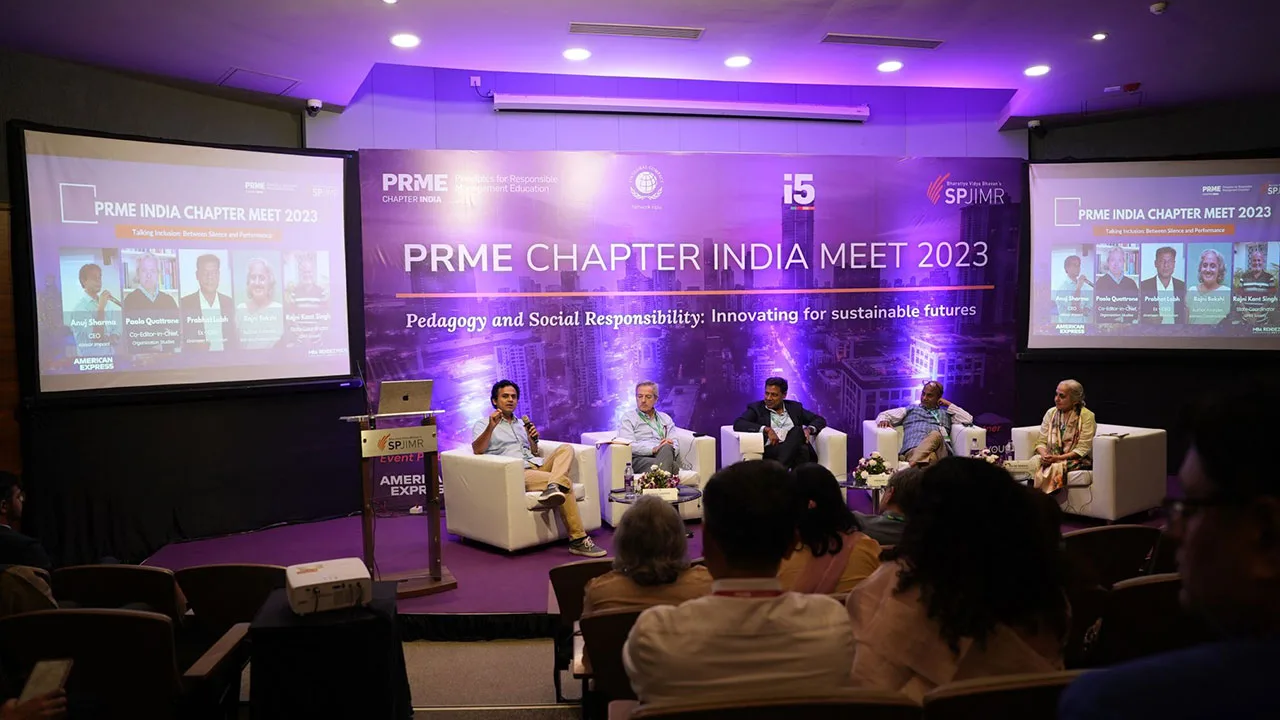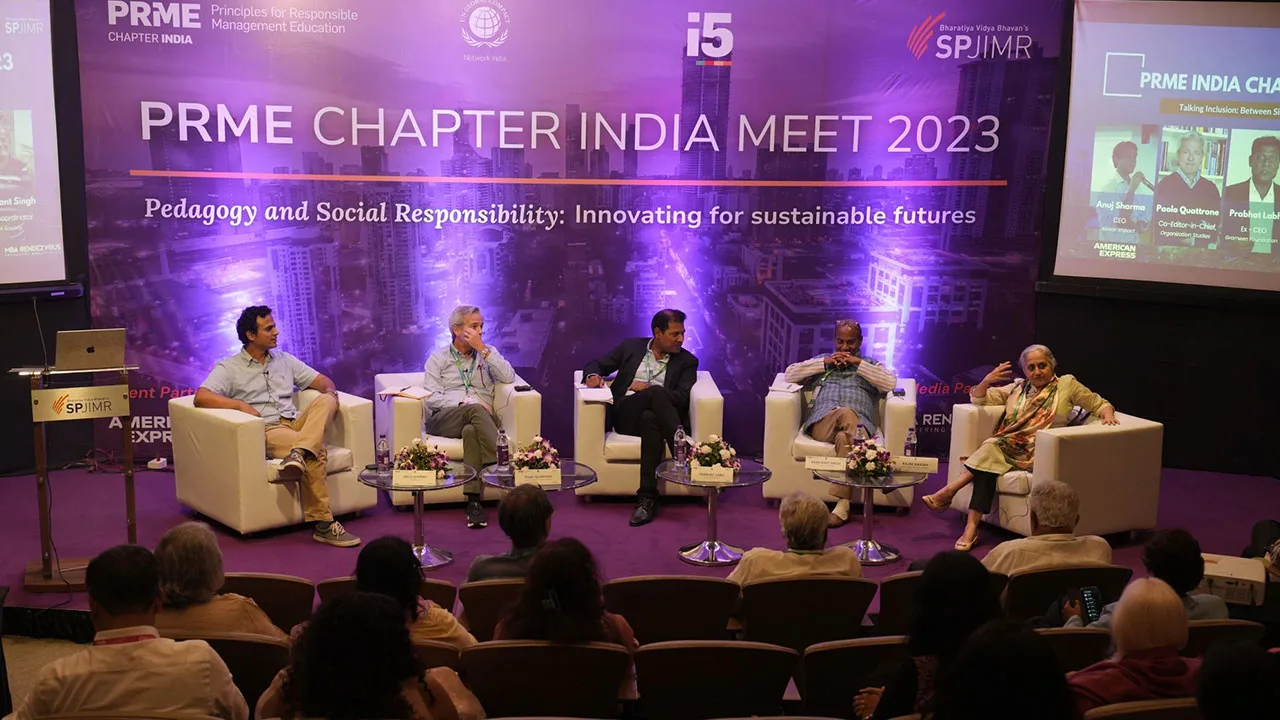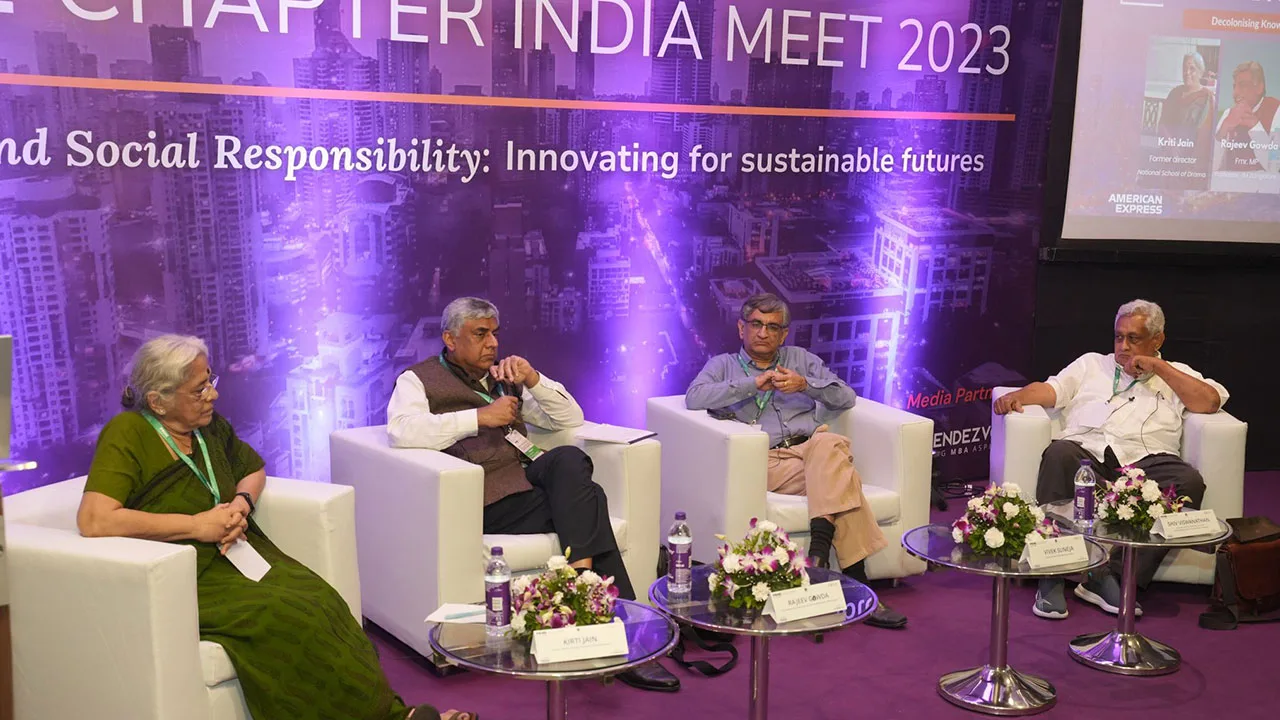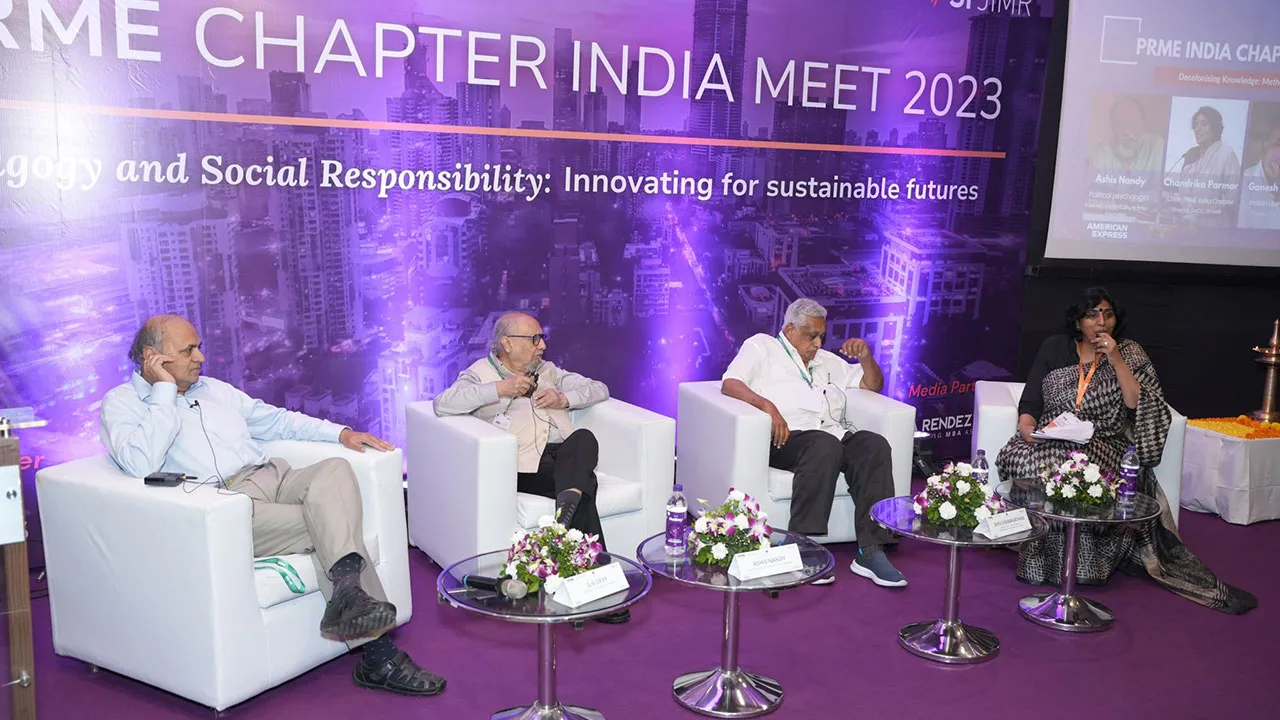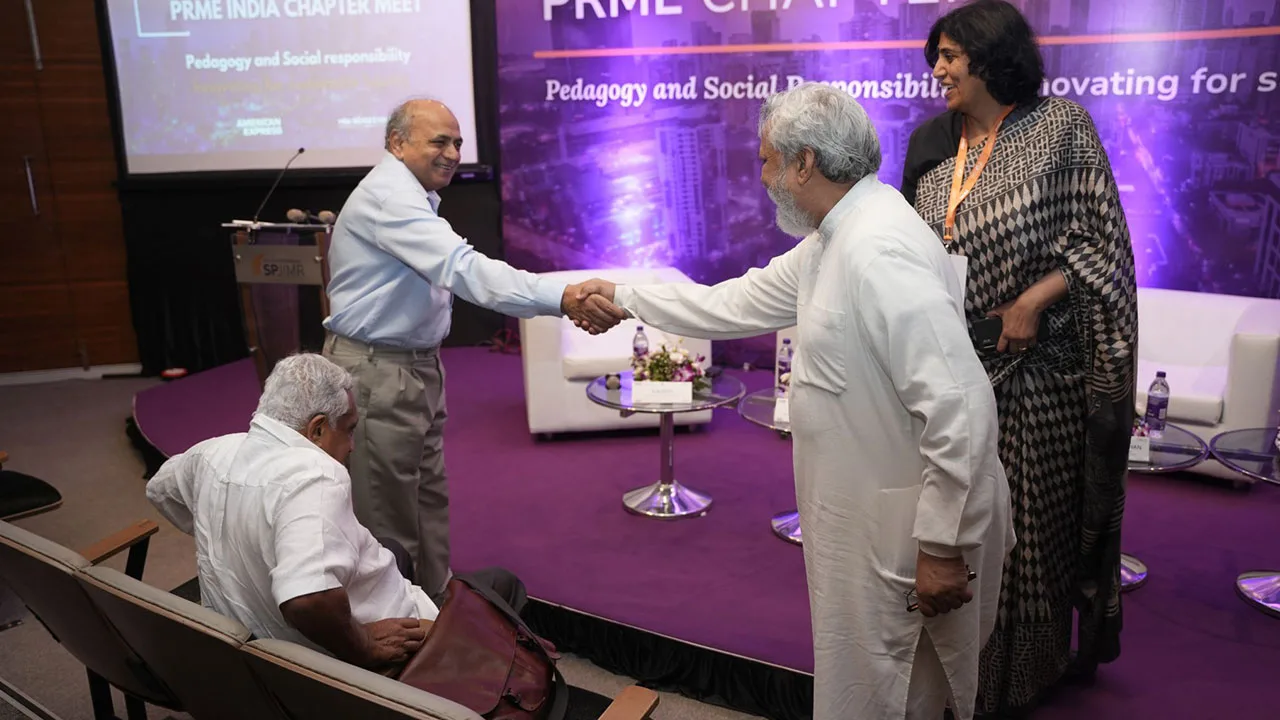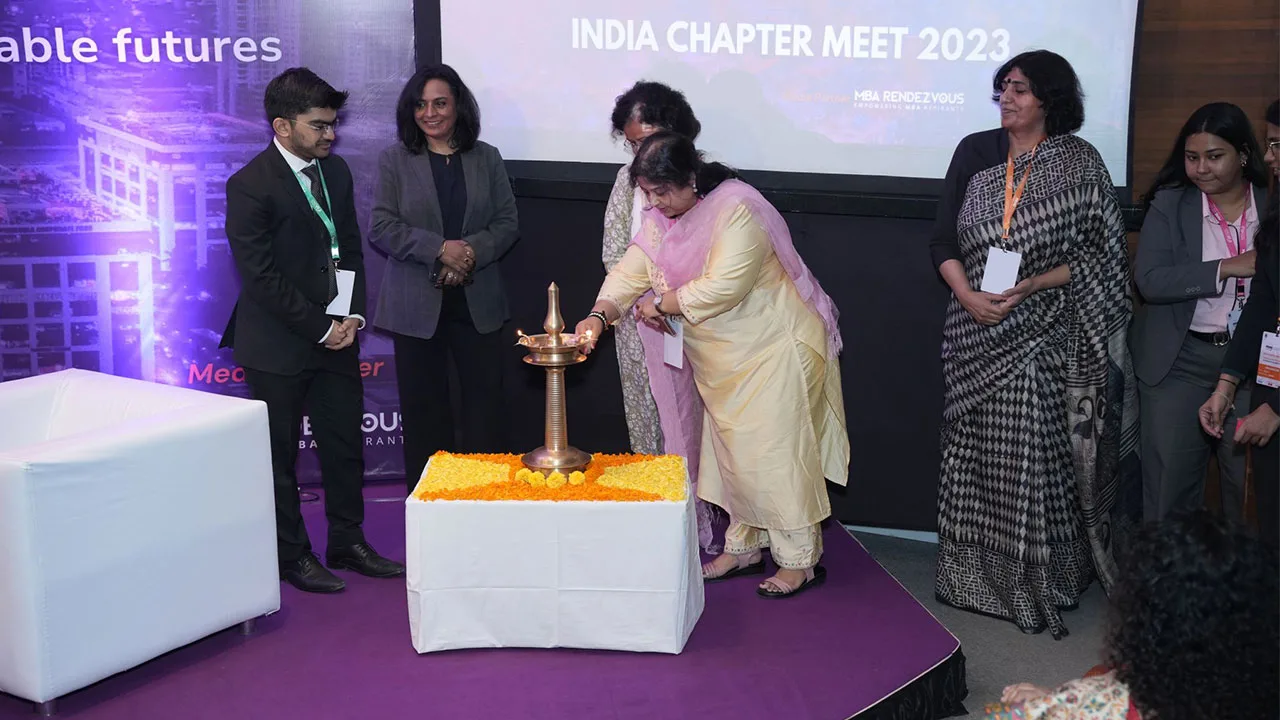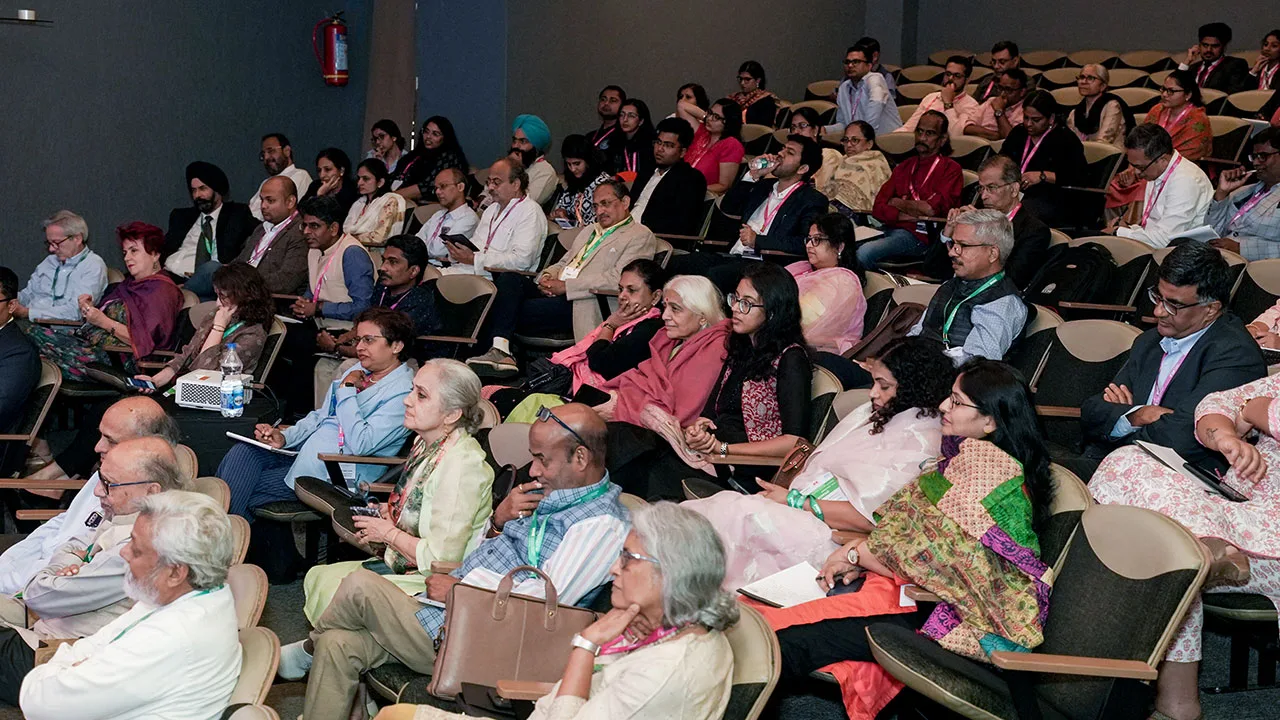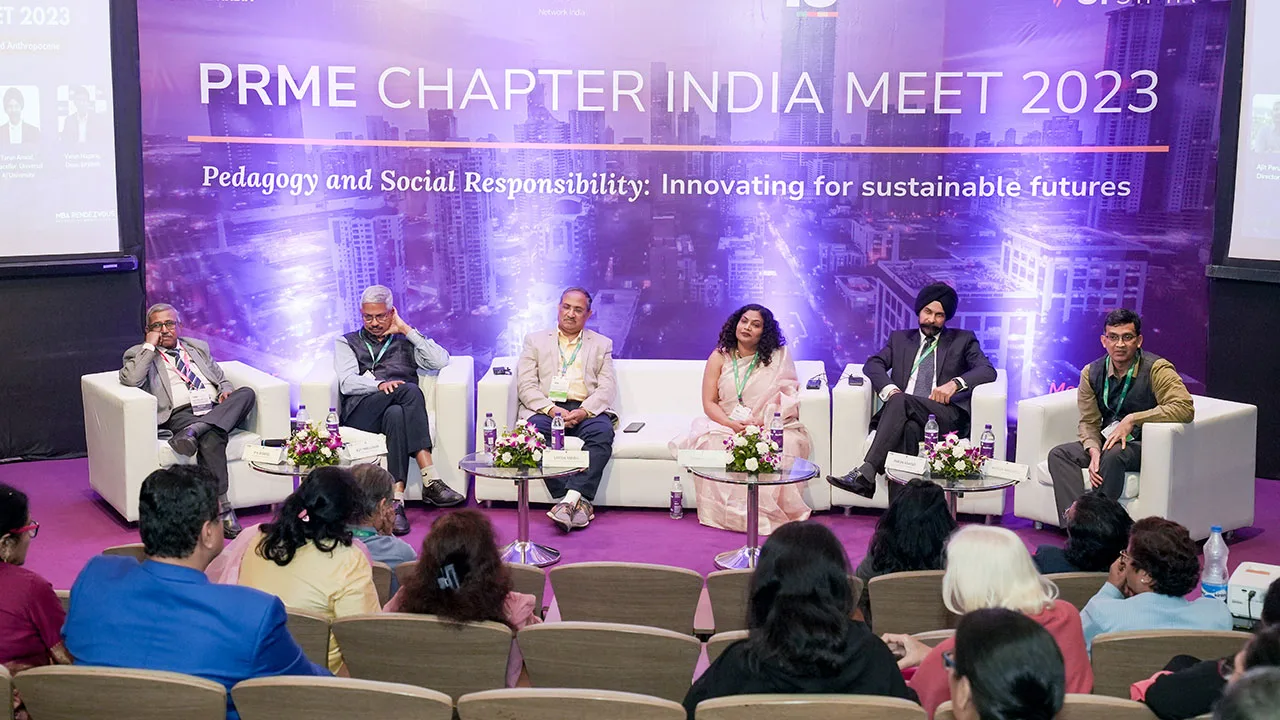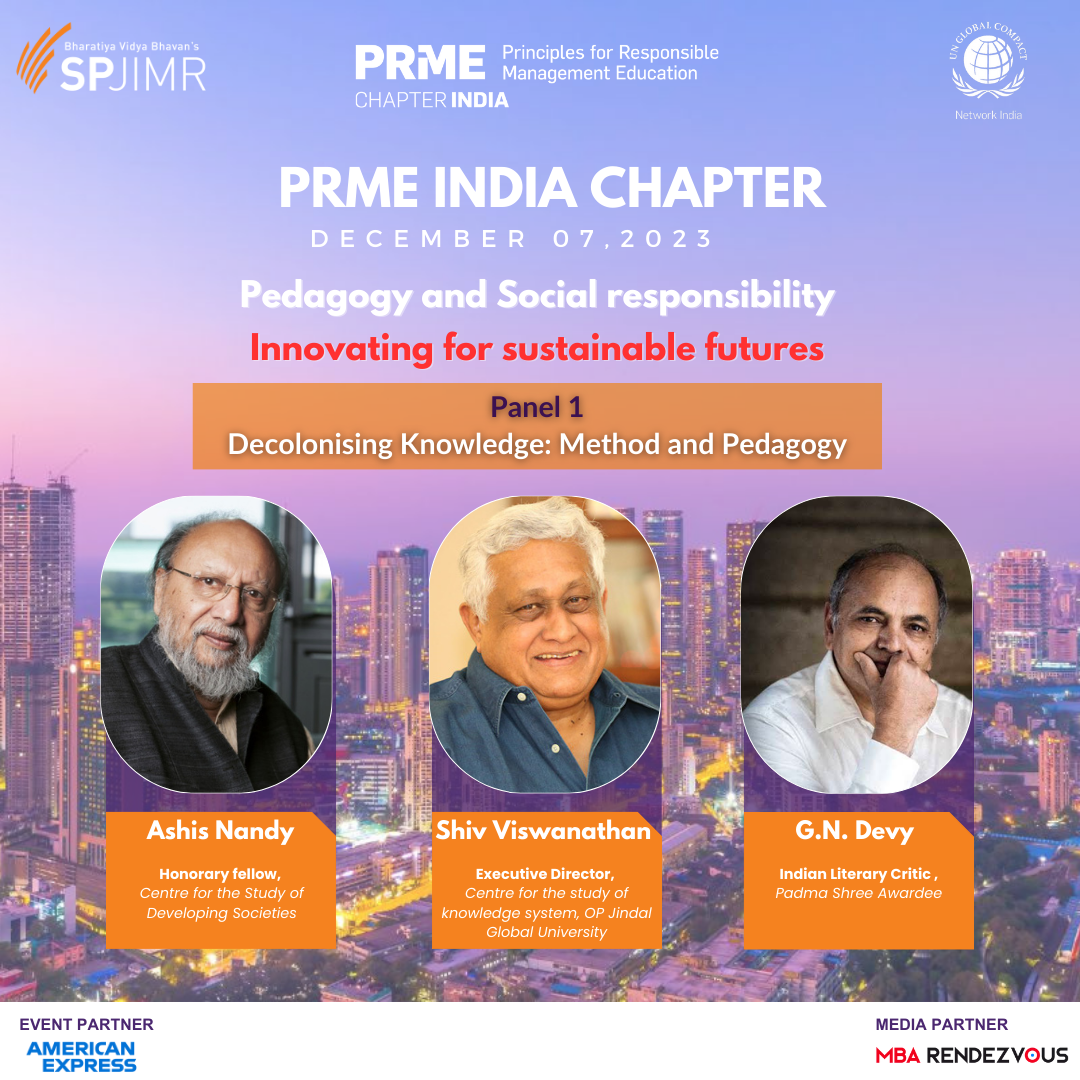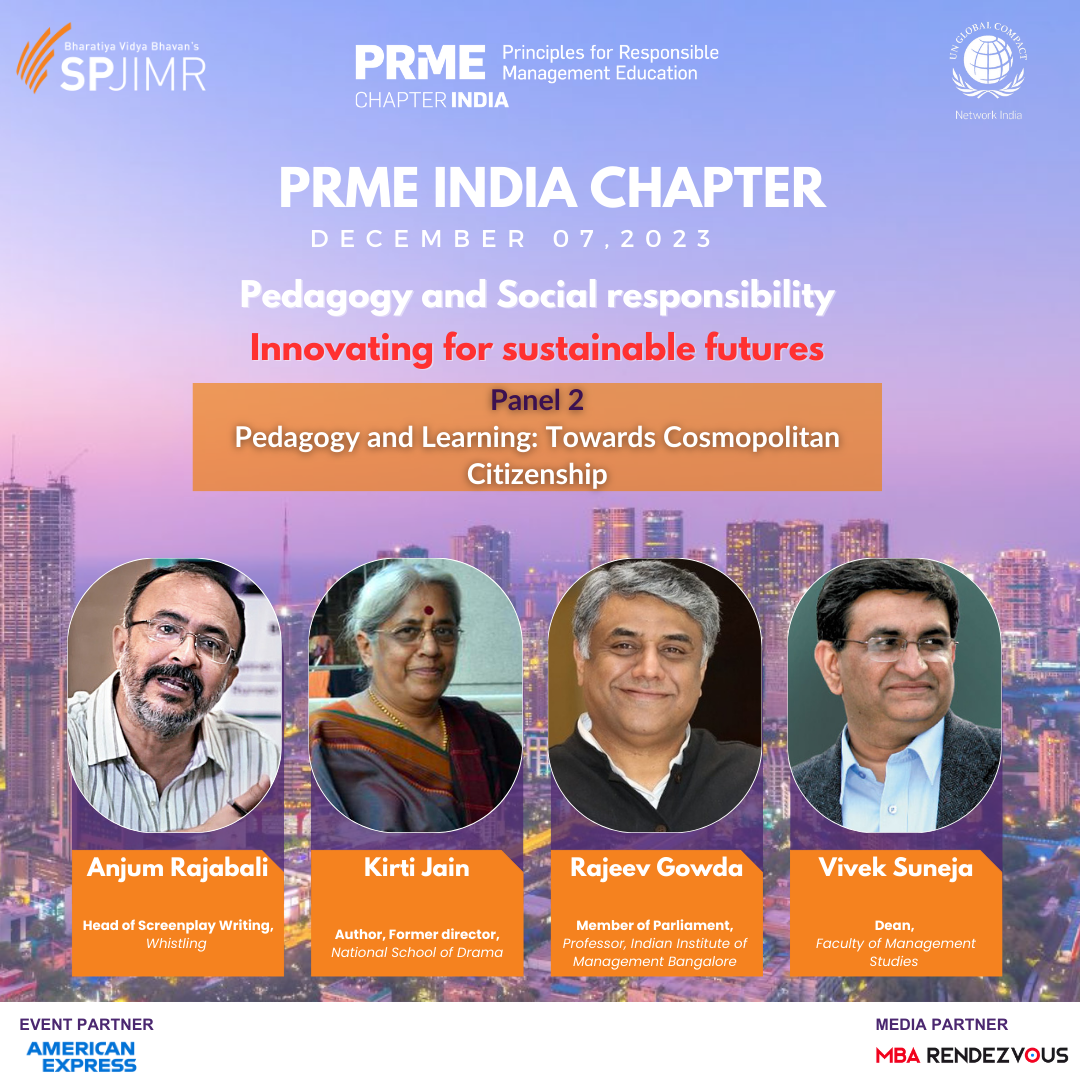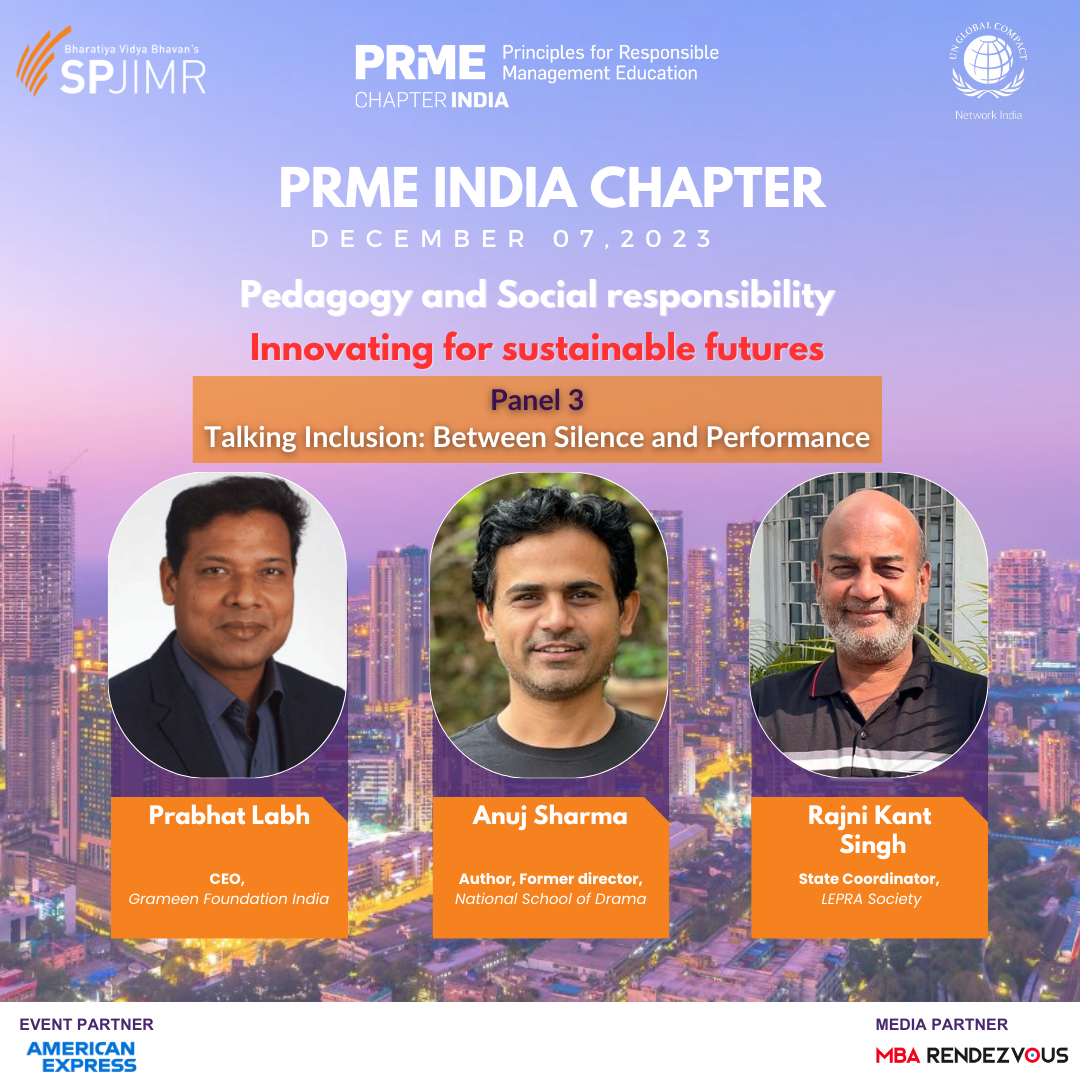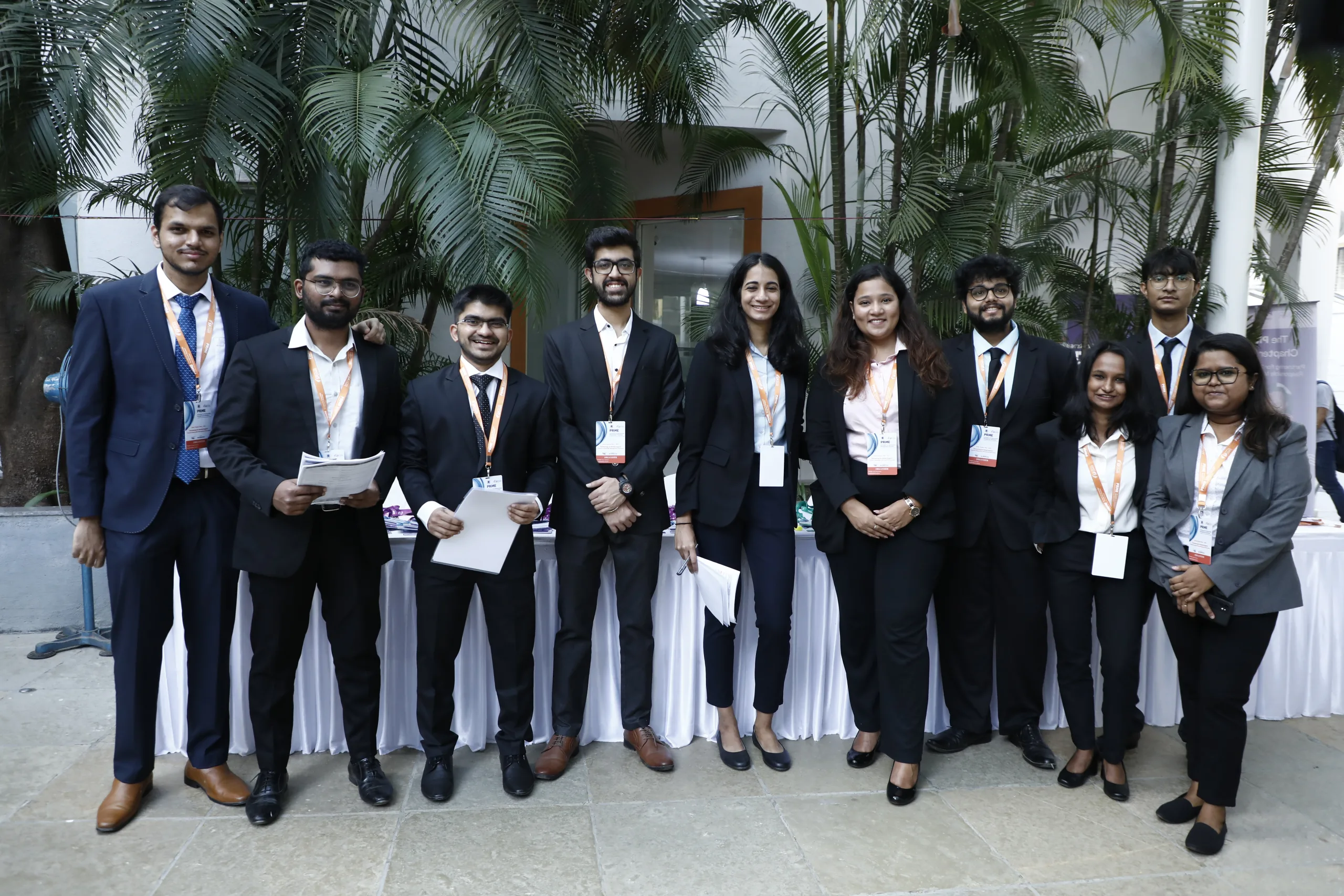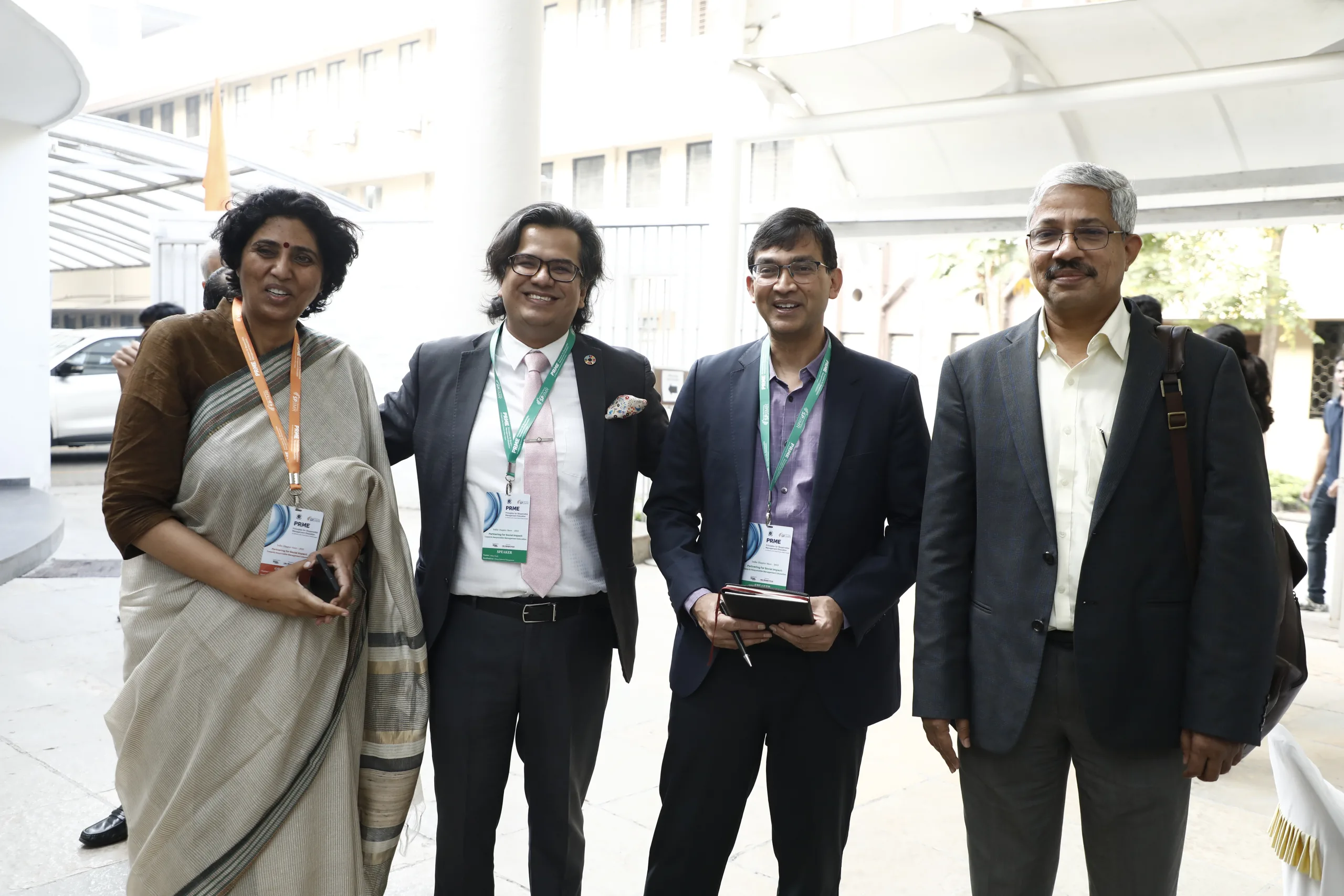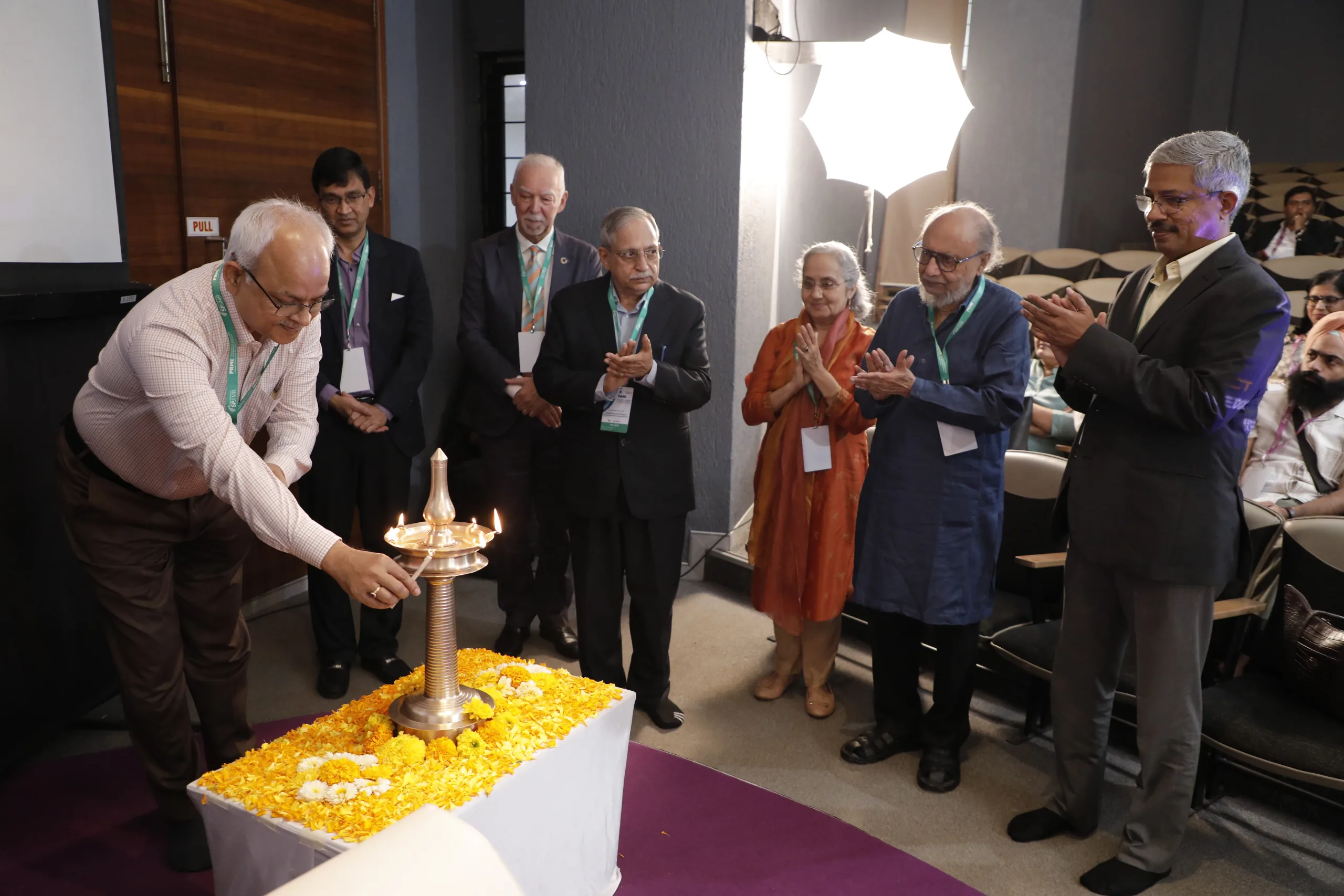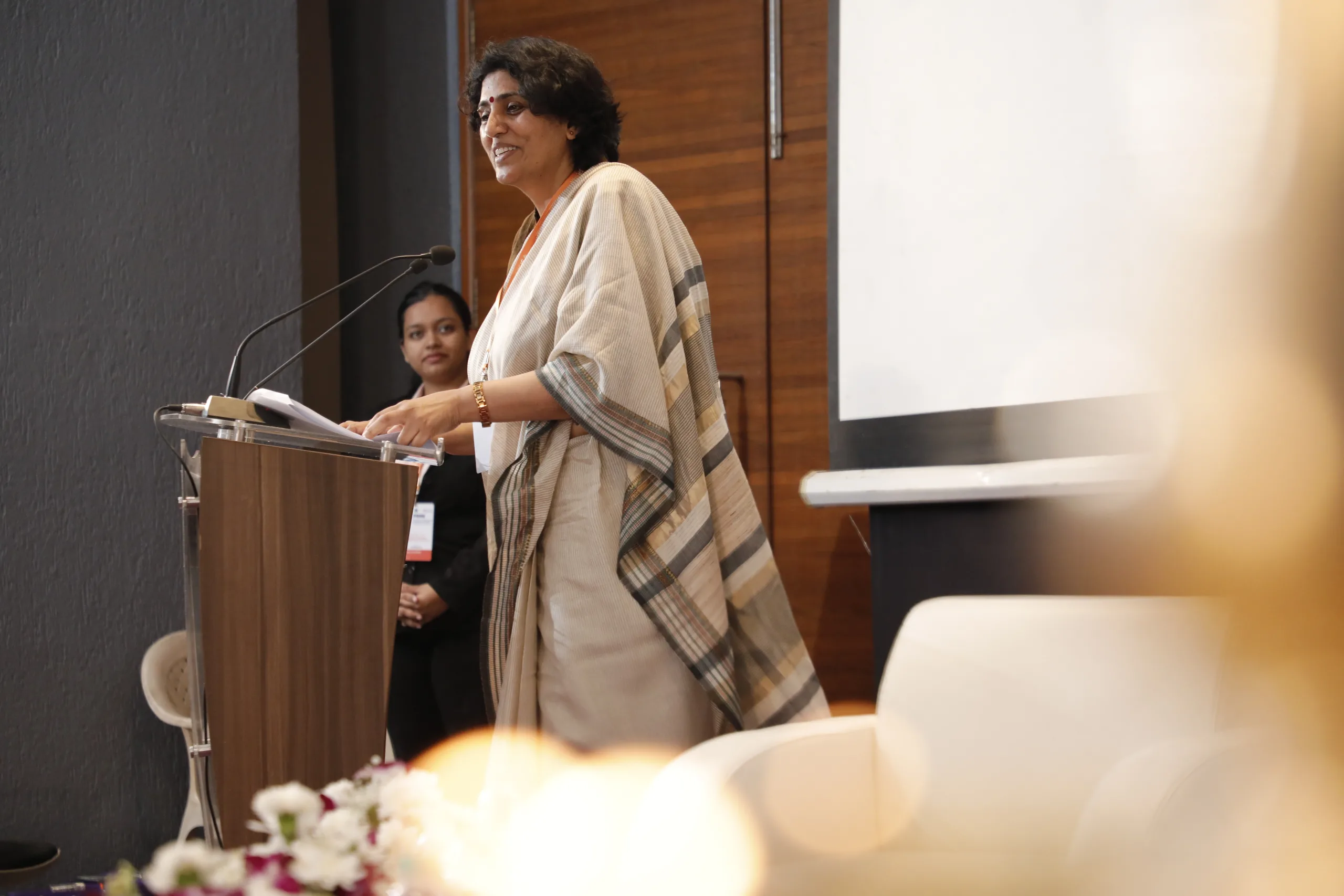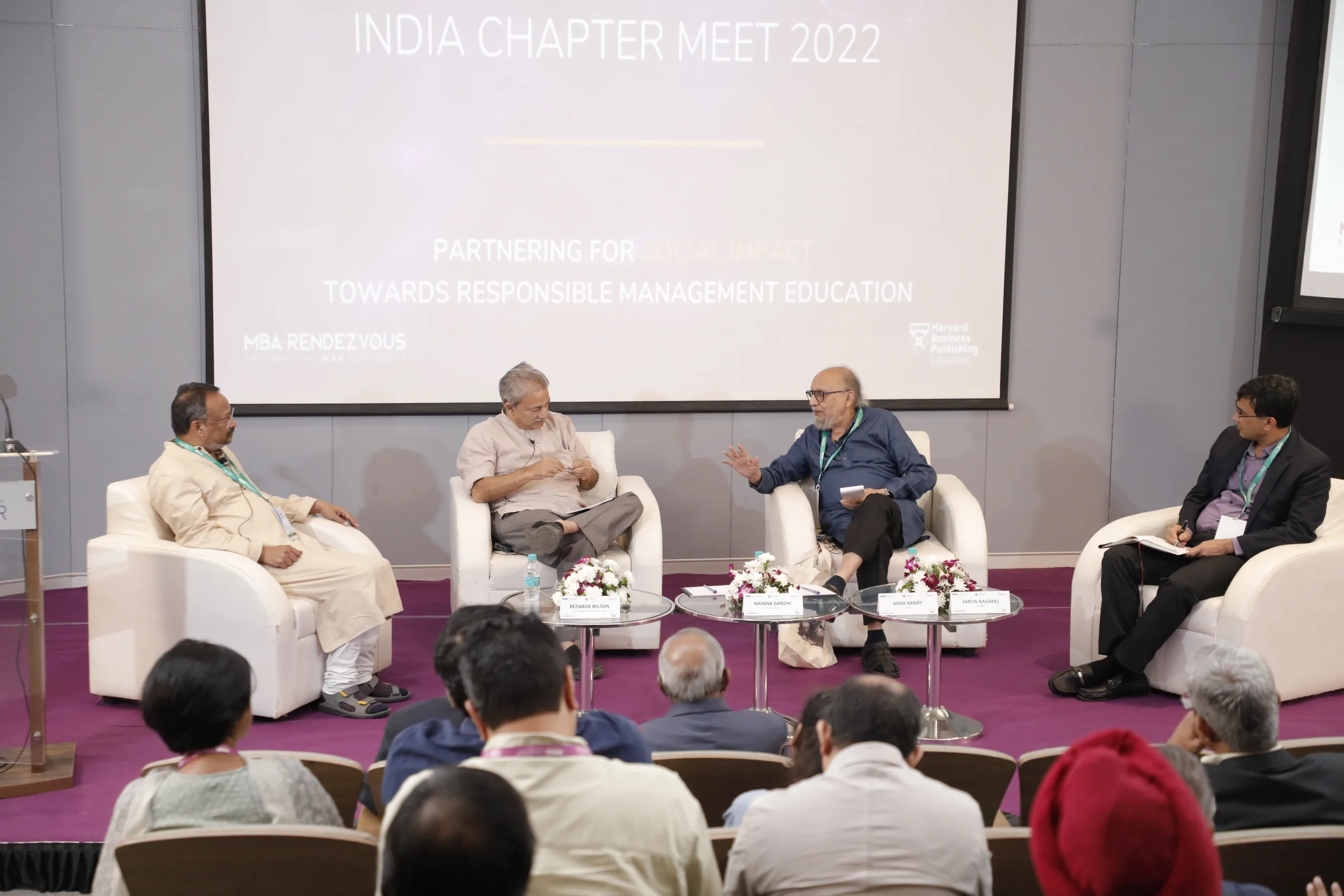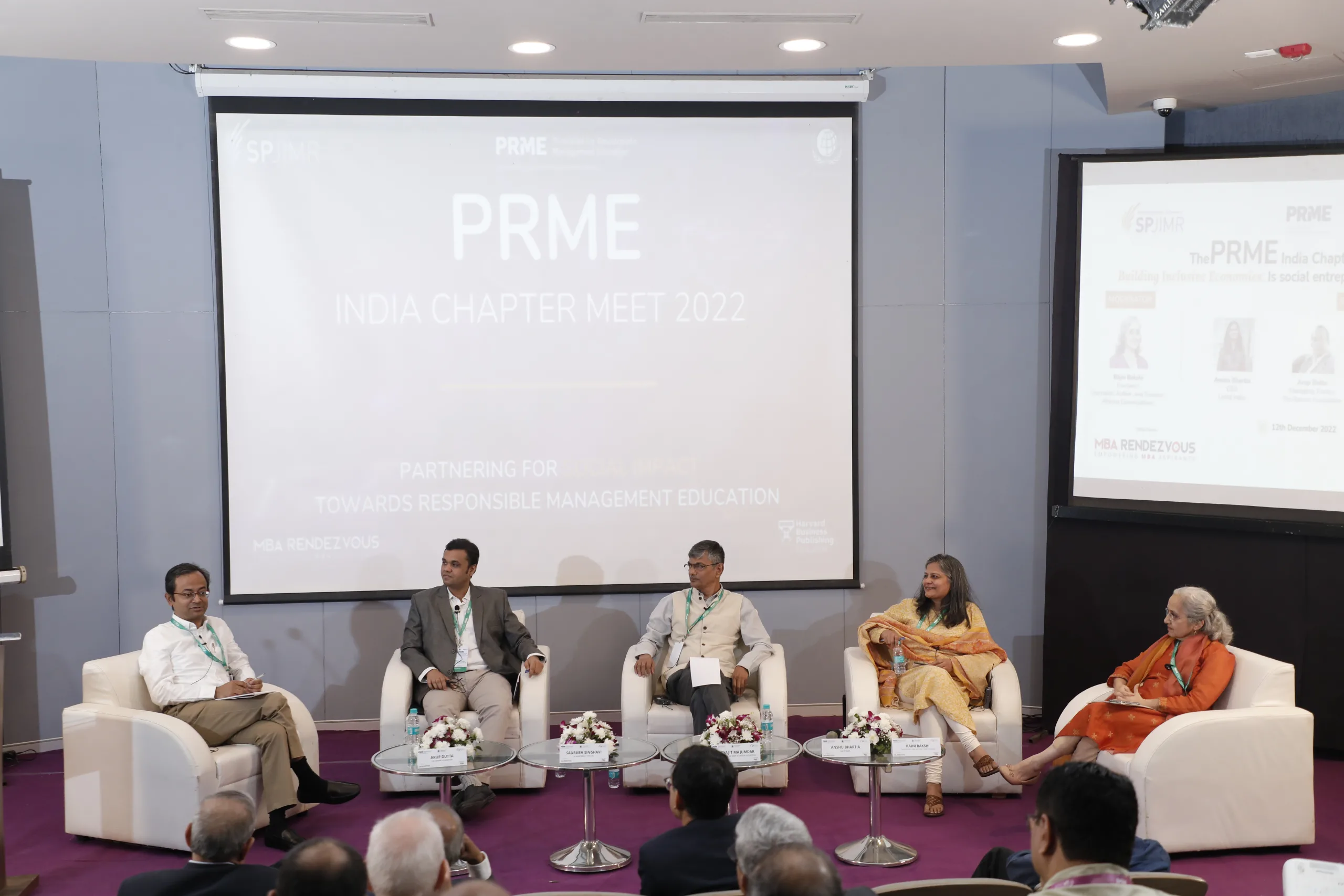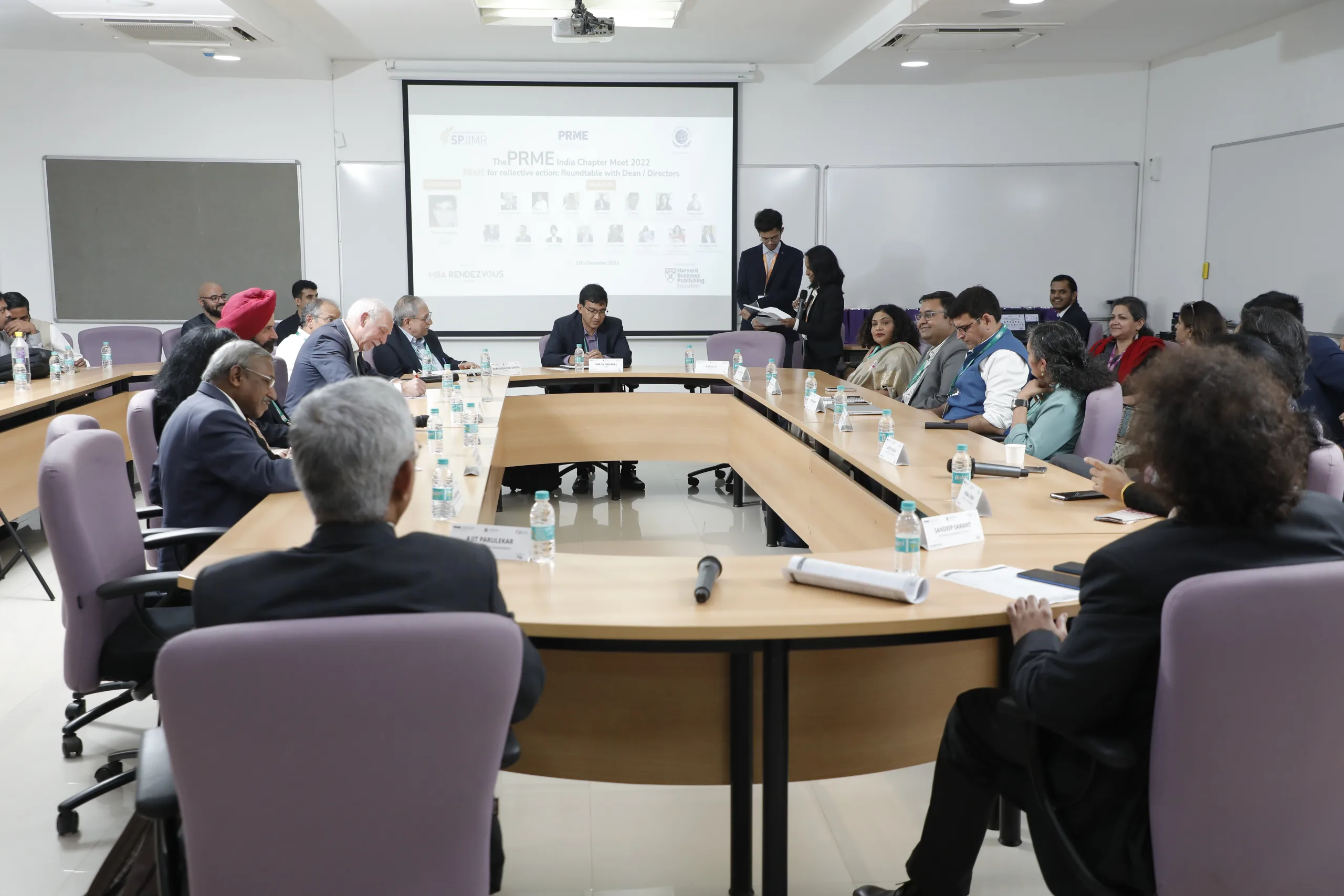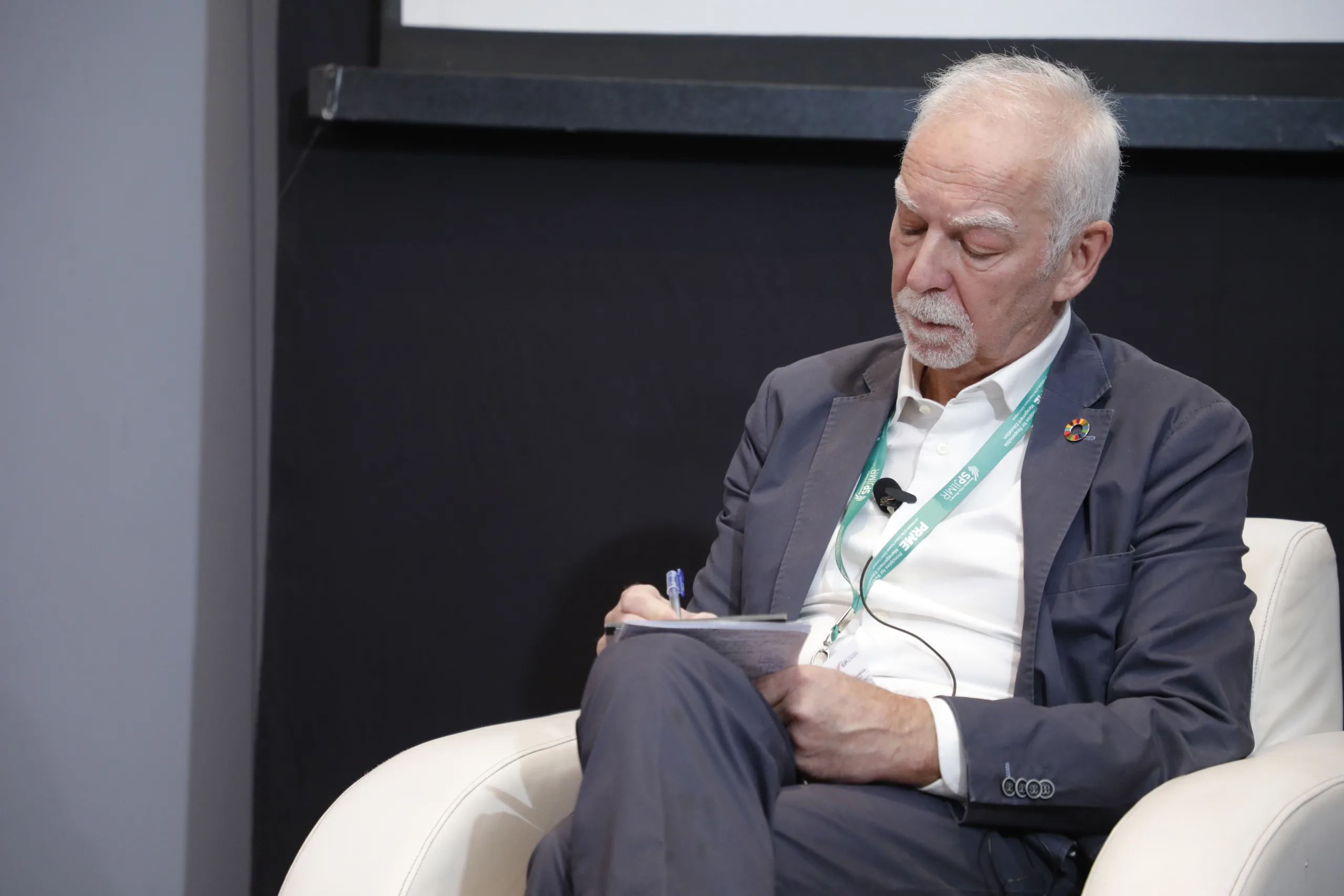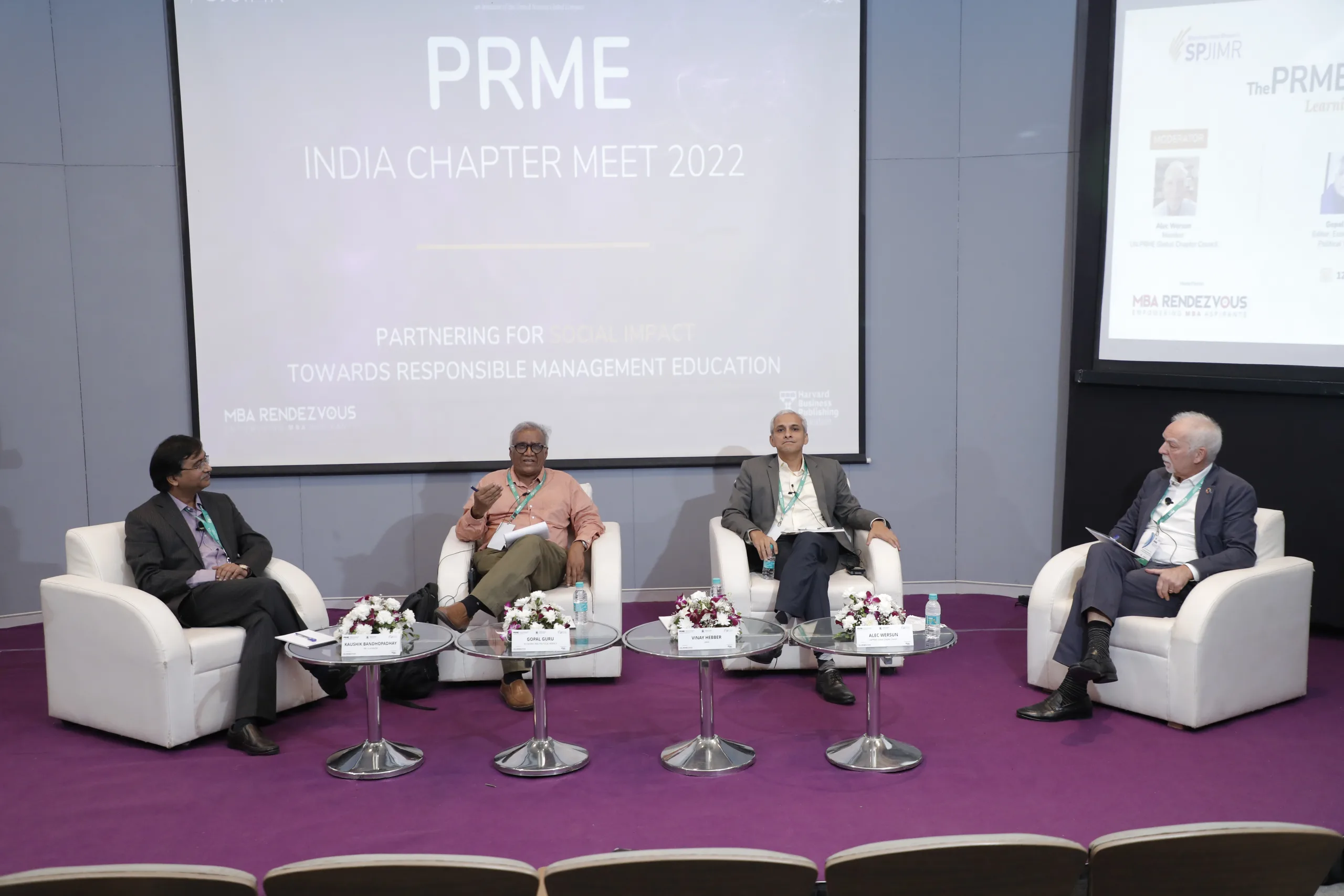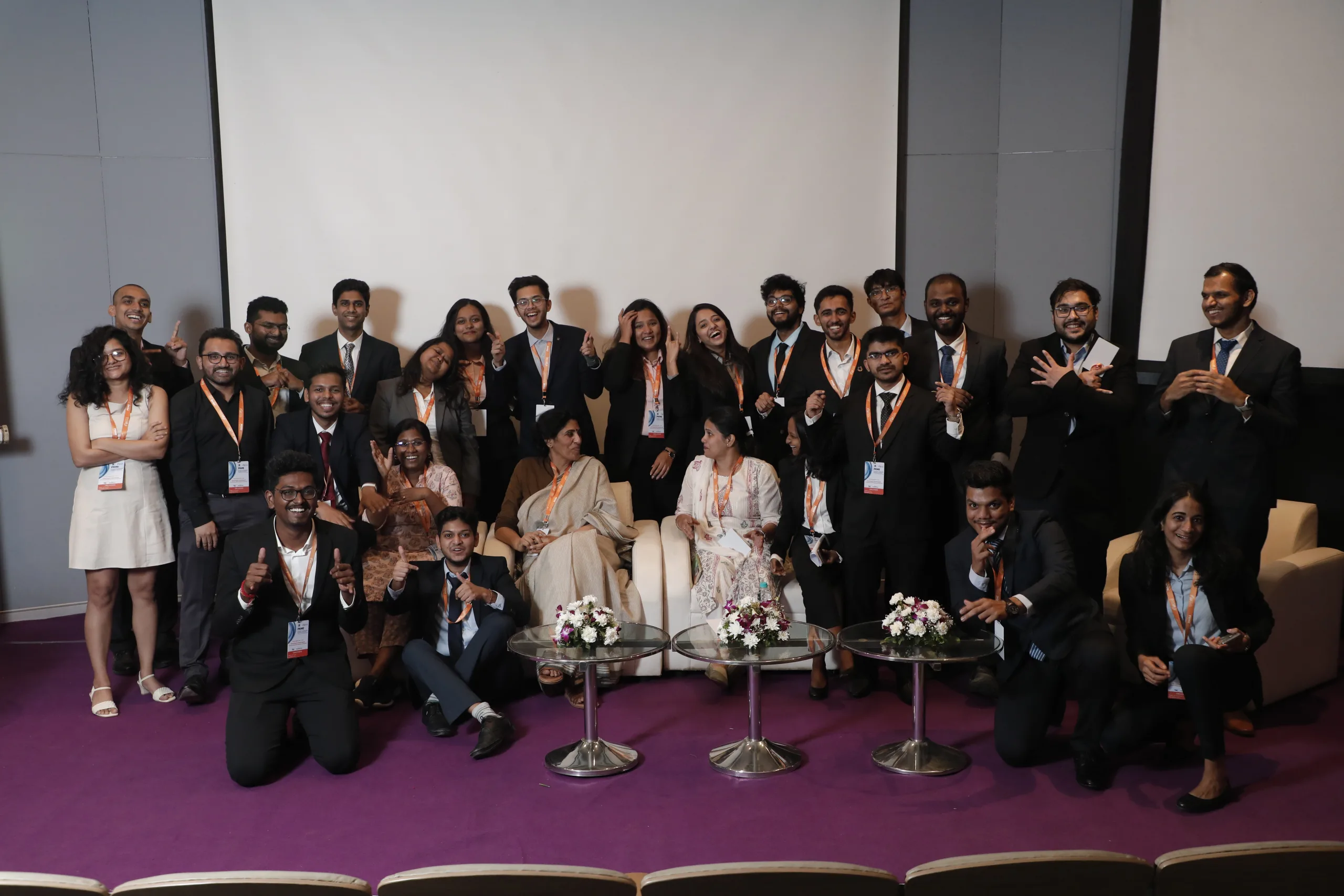Pedagogy and social responsibility: Innovating for sustainable future
The PRME India Chapter Meet 2023 brought together key stakeholders from universities, management schools, corporates, and civil society organisations (CSOs) across India to initiate dialogues and collaborations essential to cultivating sustainability and social equity awareness in management education as well as empowering them to become responsible leaders. Prominent academics, screenwriters, social impact investors, civil society organisations (CSOs), public intellectuals, Deans, and directors from over 100 organisations convened to share diverse perspectives centred around the theme “Pedagogy and Social Responsibility: Innovating for Sustainable Futures”. The PRME India Chapter Chair and Director of DoCC, Chandrika Parmar, welcomed the delegates. She was joined by SPJIMR PGDM 2024 participant Harsh Mehta, a PGS regional leader who shared his experiences at PGS and his vision of the future.
The four dynamic panels delved into transformative topics, exploring the significant aspects of decolonising knowledge, fostering inclusion, reimagining learning paradigms, and addressing the urgency of climate change. The ‘Decolonising Knowledge: Method and Pedagogy’ panel witnessed recognised thought leaders, Ashis Nandy, Shiv Visvanathan, and Ganesh Devy, engage in discussions about reinstating the notion of childhood in education, advocating the teaching of futurology to school children and asserting that “Sustainability isn’t external to our beings; it’s within us.” The ‘Pedagogy and Learning: Towards Cosmopolitan Citizenship’ panellists included Vivek Suneja, Kirti Jain, and Rajeev Gowda, who emphasised the role of pedagogy and learning in fostering creativity, empathy, and sensitivity among students arguing to build ecosystems that nurture cosmopolitan citizens.
The panel on “Talking Inclusion: Between Silence and Performance,” featuring Anuj Sharma, Prabhat Labh, Rajni Kant Sharma, and Paolo Quattarone, with Rajni Bakshi as the moderator, explored various aspects of discrimination and discussed ways to promote inclusion. The conversation ranged from the role of Anganwadi in breaking barriers for the girl child to rethinking social impact and creating capacities among indigenous groups, as well as addressing the stigma faced by leprosy patients. Varun Nagaraj, Dean of SPJIMR, led the closing panel discussion with Ajit Parulekar, Director of GIM, Tarun Anand, Vice Chancellor of UAI, P K Biswas, VC of Jagran University, and Sapna Rakesh, Director of GLBIMR, focusing on “Business School for Climate Leadership.”
PRME India Chapter Meet 2023 exemplified the power of collaborative efforts in shaping the path towards innovative, sustainable futures. From reimagining education paradigms to addressing societal challenges like climate change and inclusion, the dialogues resonated with an affirmation to amplifying impact and the commitment to actively extend initiatives beyond academic realms to benefit communities and cities at large.
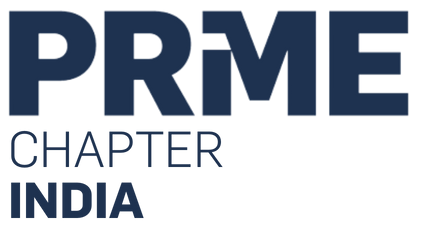
Principles of Responsible Management Education (PRME) is a learning community of management schools committed to weaving six core principles into business and management education.
Prof. Chandrika Parmar, Director of DoCC at SPJIMR is the current PRME India Chapter chair.
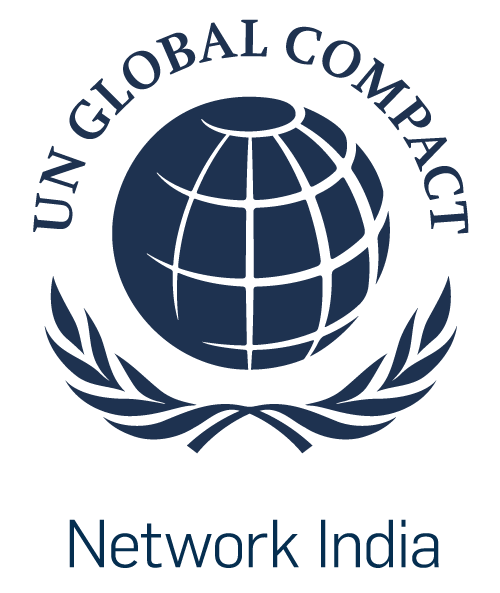
The Global Compact Network India works towards mainstreaming the ten universally accepted principles in business activities around the world, catalyzing action in support of broader goals, such as the Sustainable Development Goals (SDGs) and setting the tone for the post 2015 development agenda within the Indian context.
As the Indian arm of the UNGC, the Global Compact Network India has established a semiotic relationship with the overall mandate and principles of the UNGC. Through its activities and programmes such as the India CEO forum on Human Rights, Women Empowerment Principles, Collective Action Project, National Convention, etc. GCNI continues to streamline its energies towards the promotion of the UNGC core areas and sustainable and responsible practices amongst its members belonging to the private sector along with the participation of public and civil society stakeholders of India.
Objectives:
- Connect with leading scholars in the field to stay updated on best practices.
- Engage actively to gain actionable insights for immediate organizational benefits.
- Collaborate with fellow enthusiasts to enhance competencies and empower societal impact leaders.
- Foster partnerships for systemic change across businesses, non-profits, government, and education.
- Explore innovative approaches to workforce preparation and talent pipeline through business schools.
- Contribute to the achievement of UN’s Sustainable Development Goals for a better future.
Participants profile:
The PRME India Chapter Meet is a forum open to all academic, corporate, and social sector audiences and is not limited to members of the PRME India Chapter or signatories of the UN-supported PRME.
Students, Academics, Social sector, Corporate leaders, SDG practitioners


